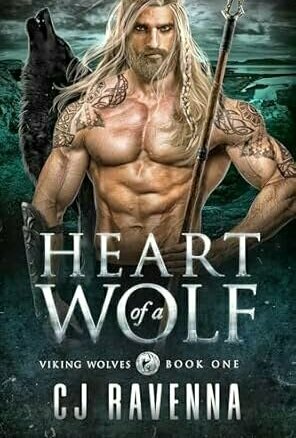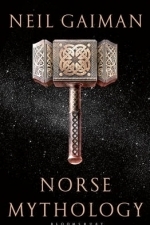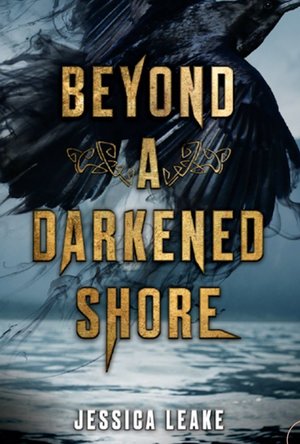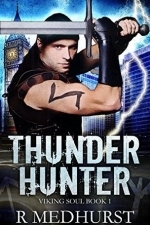Search
Merissa (13770 KP) rated Heart of a Wolf (Viking Wolves #1) in Books
May 23, 2025
HEART OF A WOLF is the first book in the Viking Wolves series. I thoroughly enjoyed it and can't wait for the next book.
In this one, Kieran is visiting Iceland with his friend, Amanda, after finding his boyfriend cheating. After being given a beautiful carved wolf statue, he is whisked away to another time, where werewolves and fated mates are real. Will Kieran stay with Wulfric or will he return to his own time?
Paranormal and fated mates? We're talking insta-love then, right? Wrong! Wulfric feels a pull to Kieran but it's not insta-love and I loved that! As for Kieran, well, he's just a pathetic human so he won't have any idea anyway. These two together were amazing. I loved how Wulfric did small things for Kieran without making a big fuss, including cooking and training.
The inclusion of Norse mythology made this a great read, and I loved how the wood of Yggdrasil was used. This story had a multitude of characters I want to know more about and I'm really looking forward to the next book.
A great read and HIGHLY RECOMMENDED by me.
** same worded review will appear elsewhere **
* A copy of this book was provided to me with no requirements for a review. I voluntarily read this book; the comments here are my honest opinion. *
Merissa
Archaeolibrarian - I Dig Good Books!
Jan 17, 2025
In this one, Kieran is visiting Iceland with his friend, Amanda, after finding his boyfriend cheating. After being given a beautiful carved wolf statue, he is whisked away to another time, where werewolves and fated mates are real. Will Kieran stay with Wulfric or will he return to his own time?
Paranormal and fated mates? We're talking insta-love then, right? Wrong! Wulfric feels a pull to Kieran but it's not insta-love and I loved that! As for Kieran, well, he's just a pathetic human so he won't have any idea anyway. These two together were amazing. I loved how Wulfric did small things for Kieran without making a big fuss, including cooking and training.
The inclusion of Norse mythology made this a great read, and I loved how the wood of Yggdrasil was used. This story had a multitude of characters I want to know more about and I'm really looking forward to the next book.
A great read and HIGHLY RECOMMENDED by me.
** same worded review will appear elsewhere **
* A copy of this book was provided to me with no requirements for a review. I voluntarily read this book; the comments here are my honest opinion. *
Merissa
Archaeolibrarian - I Dig Good Books!
Jan 17, 2025

The Wolf in the Whale
Book
'IMAGINATIVE AND COMPELLING' Juliet Marillier, author of the Sevenwaters Series THERE IS A VERY OLD...
Historical Fiction Mythology
ClareR (6067 KP) rated Unclean Spirits (Gods and Monsters #1) in Books
Feb 20, 2018 (Updated Feb 20, 2018)
Low down and dirty Mythology!!
Carson Cole escapes his life of servitude when a bomb destroys his boss, Mr E. Rose. Yes, if you say it quickly it sounds like Eros, and that’s because it IS Eros. Carson learns that he is embroiled in the world of the Gods from every pantheon. They have all been cast out of the heavens by ‘The Usurper’ and are having to scratch out a life on Earth. Not many of them actually like it.
Carson had lost his life five years previously to Eros’ whims, and his wife and son hate him. He goes on a journey with Frank (who is frankly, a horrific character) to find out why this is. It’s a ‘100mph’ book: non-stop action pretty much, and if you like Gods (and monsters!) you’ll like this. It has a very dark, menacing atmosphere: dirty, unclean, violent. I enjoyed it! There was a bit (a huge!) twist at the end.
I also enjoyed the short story at the end by Pat Kelleher (Drag Hunt) featuring Coyote. This story isn’t set completely in the US, but does start there and ends in London and it’s environs. Coyote has lost a rather important part of himself, and is determined to find it. A very enjoyable story, again, with a great selection of Norse, Celtic, Egyptian and other Gods that I have probably forgotten in it! I find myself very much enjoying these stories with Coyote in. He’s very much the Loki of the North American native people. Got to love a trickster!
Thanks to Netgalley and the publisher for my copy of this book!
Carson had lost his life five years previously to Eros’ whims, and his wife and son hate him. He goes on a journey with Frank (who is frankly, a horrific character) to find out why this is. It’s a ‘100mph’ book: non-stop action pretty much, and if you like Gods (and monsters!) you’ll like this. It has a very dark, menacing atmosphere: dirty, unclean, violent. I enjoyed it! There was a bit (a huge!) twist at the end.
I also enjoyed the short story at the end by Pat Kelleher (Drag Hunt) featuring Coyote. This story isn’t set completely in the US, but does start there and ends in London and it’s environs. Coyote has lost a rather important part of himself, and is determined to find it. A very enjoyable story, again, with a great selection of Norse, Celtic, Egyptian and other Gods that I have probably forgotten in it! I find myself very much enjoying these stories with Coyote in. He’s very much the Loki of the North American native people. Got to love a trickster!
Thanks to Netgalley and the publisher for my copy of this book!
David McK (3705 KP) rated Norse Mythology in Books
Jan 28, 2019
I have to be honest: I'm not really sure how to classify this (based on my classification system).
Mainly since I don't have a shelf for 'mythology'.
Which is what this is: a straight re-telling of various of the Norse myths by [a:Neil Gaiman|1221698|Neil Gaiman|https://images.gr-assets.com/authors/1234150163p2/1221698.jpg], an author who is most familiar to me through his colloboration (and friendship) with the late, great, Sir [a:Terry Pratchett|1654|Terry Pratchett|https://images.gr-assets.com/authors/1235562205p2/1654.jpg] in [b:Good Omens: The Nice and Accurate Prophecies of Agnes Nutter, Witch|12067|Good Omens The Nice and Accurate Prophecies of Agnes Nutter, Witch|Terry Pratchett|https://images.gr-assets.com/books/1392528568s/12067.jpg|4110990], but who I am aware is famous in his own right and has written many other tales - some of which I have read (such as [b:Stardust|16793|Stardust|Neil Gaiman|https://images.gr-assets.com/books/1459127484s/16793.jpg|3166179], [b:American Gods|30165203|American Gods|Neil Gaiman|https://images.gr-assets.com/books/1462924585s/30165203.jpg|1970226] and [b:Neverwhere|14497|Neverwhere|Neil Gaiman|https://images.gr-assets.com/books/1348747943s/14497.jpg|16534] all spring to mind), others of which I haven't (such as his Sandman series) .
As a straight re-telling, some of these myths are already familioar as they are ingrained in our popular culture (such as Ragnarok), whereas others have become more 'popular' and familiar over the years since the inclusion of Thor (and Loki) in the Marvel Cinematic Universe.
It is unusual, however, to find such a retelling that is aimed at an adult audience - even if, by reading some of the prose within this, you might think it was aimed at kids (until you realise what's going on)!
Mainly since I don't have a shelf for 'mythology'.
Which is what this is: a straight re-telling of various of the Norse myths by [a:Neil Gaiman|1221698|Neil Gaiman|https://images.gr-assets.com/authors/1234150163p2/1221698.jpg], an author who is most familiar to me through his colloboration (and friendship) with the late, great, Sir [a:Terry Pratchett|1654|Terry Pratchett|https://images.gr-assets.com/authors/1235562205p2/1654.jpg] in [b:Good Omens: The Nice and Accurate Prophecies of Agnes Nutter, Witch|12067|Good Omens The Nice and Accurate Prophecies of Agnes Nutter, Witch|Terry Pratchett|https://images.gr-assets.com/books/1392528568s/12067.jpg|4110990], but who I am aware is famous in his own right and has written many other tales - some of which I have read (such as [b:Stardust|16793|Stardust|Neil Gaiman|https://images.gr-assets.com/books/1459127484s/16793.jpg|3166179], [b:American Gods|30165203|American Gods|Neil Gaiman|https://images.gr-assets.com/books/1462924585s/30165203.jpg|1970226] and [b:Neverwhere|14497|Neverwhere|Neil Gaiman|https://images.gr-assets.com/books/1348747943s/14497.jpg|16534] all spring to mind), others of which I haven't (such as his Sandman series) .
As a straight re-telling, some of these myths are already familioar as they are ingrained in our popular culture (such as Ragnarok), whereas others have become more 'popular' and familiar over the years since the inclusion of Thor (and Loki) in the Marvel Cinematic Universe.
It is unusual, however, to find such a retelling that is aimed at an adult audience - even if, by reading some of the prose within this, you might think it was aimed at kids (until you realise what's going on)!

Jim Shooter: Conversations
Jason Sacks, Eric Hoffman and Dominick Grace
Book
As an American comic book writer, editor, and businessman, Jim Shooter (b. 1952) remains among the...
Merissa (13770 KP) rated Deal With Her Dragon (Thor's Sons Crave Curves #1) in Books
Aug 2, 2020
Deal with her Dragon is the first book in the Thor's Sons Love Curves series and, as the title of both suggest, there are DRAGONS!!! and curves.
The first thing I need to say is I love the ages of our main female. She is in her early forties - not a twenty-something whippersnapper. For the most part, Emelie is a strong and confident woman. The only time she isn't is when she is with her mother or when her coven-mates profess to know more about her situation than she does. This was annoying - mainly because so much of it struck home to me - but also added a whole layer of believability to the story!
There is some serious heat going on between Ragnarr and Emelie which made the hard part all the harder. I loved how descriptive of both main characters that part was. You could feel the despair oozing off the page from both of them.
The world-building is brilliant and I love that it's set in Sweden instead of America. The characters are all fully-dimensional, whether or not you like them is a different story. This is a complete story by itself but other brothers are mentioned.
All in all, this is a fantastic first book that introduces a world of dragons and some seriously sensual loving to the reader. Ruby Sirois' writing lets you delve into a world of Norse mythology, with scenes to melt your heart or to bring tears to your eyes. A hot and steamy novel that I highly recommend and I really can't wait to read more.
* A copy of this book was provided to me with no requirements for a review. I voluntarily read this book, and the comments here are my honest opinion. *
Merissa
Archaeolibrarian - I Dig Good Books!
The first thing I need to say is I love the ages of our main female. She is in her early forties - not a twenty-something whippersnapper. For the most part, Emelie is a strong and confident woman. The only time she isn't is when she is with her mother or when her coven-mates profess to know more about her situation than she does. This was annoying - mainly because so much of it struck home to me - but also added a whole layer of believability to the story!
There is some serious heat going on between Ragnarr and Emelie which made the hard part all the harder. I loved how descriptive of both main characters that part was. You could feel the despair oozing off the page from both of them.
The world-building is brilliant and I love that it's set in Sweden instead of America. The characters are all fully-dimensional, whether or not you like them is a different story. This is a complete story by itself but other brothers are mentioned.
All in all, this is a fantastic first book that introduces a world of dragons and some seriously sensual loving to the reader. Ruby Sirois' writing lets you delve into a world of Norse mythology, with scenes to melt your heart or to bring tears to your eyes. A hot and steamy novel that I highly recommend and I really can't wait to read more.
* A copy of this book was provided to me with no requirements for a review. I voluntarily read this book, and the comments here are my honest opinion. *
Merissa
Archaeolibrarian - I Dig Good Books!
Sophia (Bookwyrming Thoughts) (530 KP) rated Such Sweet Sorrow in Books
Jan 23, 2020
<b><i>I received this book for free from Publisher in exchange for an honest review. This does not affect my opinion of the book or the content of my review.</i></b><i>Such Sweet Sorrow</i> is quite literally an unwritten sequel to <i>Romeo and Juliet</i> coinciding with <i>Hamlet</i> with a dark twist, or in other words, a bridge between the end of one Shakespeare play and the beginning of another.
I personally liked Trouts version of Romeo as he journeys to Denmark in the quest to save Juliet from death - he's much more spunky, but he has his romantic elements as well that Shakespeare originally placed in him. Hamlet is just as cheeky as his original counterpart, if not more cheeky (<i>Hamlet</i> is my favorite Shakespeare play, and it's not actually because of the ending). Juliet, like Romeo, also has another side to her Trout creates - she's more badass. (<i>Romeo and Juliet</i> is my least favorite - interesting combo going on here honestly.)
But <i>Such Sweet Sorrow</i> can be overwhelming. Trout doesn't just have <i>Hamlet</i> mashed with <i>Romeo and Juliet</i> - she's got Norse mythology and Greek mythology and who knows what else (some reviewers on Goodreads say anything you can think of... Essentially). Regardless, there is definitely a mess of things going on throughout and I just decided to go with it rather than question the book in its entirety (like what other mythological aspects are involved).
For the first half of the book, Romeo and Hamlet are, for the most part, wandering around cluelessly through this place called the Afterjord - it can get boring pretty quickly, but there is so much going on with the creatures they come across, it's not actually boring (I'm too busy trying to keep track of what's going on so I'm not lost). <i>Such Sweet Sorrow </i>doesn't actually pick up until after Romeo and Hamlet finally rescue Juliet and try to make their way back to the mortal world.
But while there is so much going on throughout, I actually liked this strange little book in all its weird complexities. However...
I'm disappointed that a cliffhanger is involved and nowhere on Goodreads does it say <i>Such Sweet Sorrow</i> has a sequel in the works.
<a href="https://bookwyrmingthoughts.com/arc-review-such-sweet-sorrow-by-jenny-trou/"; target="_blank">This review was originally posted on Bookwyrming Thoughts</a>
I personally liked Trouts version of Romeo as he journeys to Denmark in the quest to save Juliet from death - he's much more spunky, but he has his romantic elements as well that Shakespeare originally placed in him. Hamlet is just as cheeky as his original counterpart, if not more cheeky (<i>Hamlet</i> is my favorite Shakespeare play, and it's not actually because of the ending). Juliet, like Romeo, also has another side to her Trout creates - she's more badass. (<i>Romeo and Juliet</i> is my least favorite - interesting combo going on here honestly.)
But <i>Such Sweet Sorrow</i> can be overwhelming. Trout doesn't just have <i>Hamlet</i> mashed with <i>Romeo and Juliet</i> - she's got Norse mythology and Greek mythology and who knows what else (some reviewers on Goodreads say anything you can think of... Essentially). Regardless, there is definitely a mess of things going on throughout and I just decided to go with it rather than question the book in its entirety (like what other mythological aspects are involved).
For the first half of the book, Romeo and Hamlet are, for the most part, wandering around cluelessly through this place called the Afterjord - it can get boring pretty quickly, but there is so much going on with the creatures they come across, it's not actually boring (I'm too busy trying to keep track of what's going on so I'm not lost). <i>Such Sweet Sorrow </i>doesn't actually pick up until after Romeo and Hamlet finally rescue Juliet and try to make their way back to the mortal world.
But while there is so much going on throughout, I actually liked this strange little book in all its weird complexities. However...
I'm disappointed that a cliffhanger is involved and nowhere on Goodreads does it say <i>Such Sweet Sorrow</i> has a sequel in the works.
<a href="https://bookwyrmingthoughts.com/arc-review-such-sweet-sorrow-by-jenny-trou/"; target="_blank">This review was originally posted on Bookwyrming Thoughts</a>
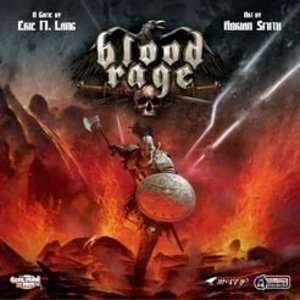
Blood Rage
Tabletop Game
"Life is Battle; Battle is Glory; Glory is ALL" In Blood Rage, each player controls their own...
Miniatures BoardGameGeekGreatness
Bethany Fletcher (17 KP) rated Beyond a Darkened Shore in Books
Jun 25, 2018
Contains spoilers, click to show
I had serious mixed feelings about this book. It promised Viking’s and magic and adventure and that was all there no doubt but not really well.
The book opens straight up with a raid. This is great as it shows us Ciara’s abilities and lets us get a feel for the story to come and our characters in general. But then it didn’t live up to this great introduction. There are plenty of action sequences, battles for Dubhlinn, battles with giants, battles with sea serpents, battles with gods, but they were all so short. Seriously almost every battle was over in about three-four pages. It felt like the author had all these great ideas and then didn’t know how to execute them.
The mythology. I was excited for this book as it was a mixture of Celtic and Norse mythology. It definitely had these elements but maybe too much? There were gods and goddesses, fairy tunnels, each-uisch, giants, magic, the wild hunt, sea serpents, Valhalla, these would have all been fine if they had a purpose. Most of these things appear for 5 pages and then are never mentioned again. It read like the author was trying to throw all of the mythology she knew at us and was trying so hard to prove, Look! Magic is real in this world. It wasn’t all necessary.
The characters. I loved Ciara. She stood up for herself, she didn’t care what anyone else thought, she was strong and independent.
Leif. I liked him to start. He was sassy, sarcastic, he stood up for those he thought were getting mistreated. But then, he did some things that made me seriously question his judgement. There is a scene where Ciara cannot sleep so decides to go and find the Viking mage. When she walks into the room full of drunk Viking men on of them attempts to rape her. Leif does help but then blames her for it saying she shouldn’t have put herself in a dangerous situation. Ciara immediately calls him out and says it’s not my fault I almost got raped because I am female. He quickly tries to backtrack but she is having none of it. This made me love Ciara more and start to question Leif.
Another questionable scene is after Ciara finds out something drastic about Leif’s family. She is understandably upset and leaves. Leif proceeds to chase her, threaten to break down her door and then forces himself on her when she opens it. Again Ciara shuts him down asking how her dare kiss her at that moment. He simply wanted her and didn’t want her to be angry. HOW ABOUT DON’T FORCE YOURSLEF ON HER THEN IDIOT?
The ending. The ending felt so rushed. Seriously we fight the giants and goddesses, sail all the way back to Ireland, have another battle and get established back at Ciara’s home all wishing about 50 pages. It was so rushed. Like the writer was nearing a page count and couldn’t go over or something.
Having said all of this I did really enjoy reading the book. It didn’t take very long was a pleasant reading experience. If it sounds like something you would like then go check it out.
The book opens straight up with a raid. This is great as it shows us Ciara’s abilities and lets us get a feel for the story to come and our characters in general. But then it didn’t live up to this great introduction. There are plenty of action sequences, battles for Dubhlinn, battles with giants, battles with sea serpents, battles with gods, but they were all so short. Seriously almost every battle was over in about three-four pages. It felt like the author had all these great ideas and then didn’t know how to execute them.
The mythology. I was excited for this book as it was a mixture of Celtic and Norse mythology. It definitely had these elements but maybe too much? There were gods and goddesses, fairy tunnels, each-uisch, giants, magic, the wild hunt, sea serpents, Valhalla, these would have all been fine if they had a purpose. Most of these things appear for 5 pages and then are never mentioned again. It read like the author was trying to throw all of the mythology she knew at us and was trying so hard to prove, Look! Magic is real in this world. It wasn’t all necessary.
The characters. I loved Ciara. She stood up for herself, she didn’t care what anyone else thought, she was strong and independent.
Leif. I liked him to start. He was sassy, sarcastic, he stood up for those he thought were getting mistreated. But then, he did some things that made me seriously question his judgement. There is a scene where Ciara cannot sleep so decides to go and find the Viking mage. When she walks into the room full of drunk Viking men on of them attempts to rape her. Leif does help but then blames her for it saying she shouldn’t have put herself in a dangerous situation. Ciara immediately calls him out and says it’s not my fault I almost got raped because I am female. He quickly tries to backtrack but she is having none of it. This made me love Ciara more and start to question Leif.
Another questionable scene is after Ciara finds out something drastic about Leif’s family. She is understandably upset and leaves. Leif proceeds to chase her, threaten to break down her door and then forces himself on her when she opens it. Again Ciara shuts him down asking how her dare kiss her at that moment. He simply wanted her and didn’t want her to be angry. HOW ABOUT DON’T FORCE YOURSLEF ON HER THEN IDIOT?
The ending. The ending felt so rushed. Seriously we fight the giants and goddesses, sail all the way back to Ireland, have another battle and get established back at Ciara’s home all wishing about 50 pages. It was so rushed. Like the writer was nearing a page count and couldn’t go over or something.
Having said all of this I did really enjoy reading the book. It didn’t take very long was a pleasant reading experience. If it sounds like something you would like then go check it out.
Merissa (13770 KP) rated Thunder Hunter (Viking Soul #1) in Books
Nov 6, 2017
Thunder Hunter (Viking Soul #1) by Rachel Medhurst
Thunder Hunter starts off many years ago, with Loki and Thor fighting. Freya is there too, plus many others, all of whom will die unless something changes. What changes is Loki kills Thor, but Freya puts Thor's power inside his grandson. Trygger must find all of the Fallen Ones before he can die, no matter how long it takes. Once that has happened, Thor will live, and Trygger will die at last, and live among the gods. Fast forward a few years, and Trygger only has five more to find. He as lived through many assassination attempts by Loki's descendants, and has killed more than his fair share too. And then Freya decides she will help him, by sending one of her descendants, Chloe.
I have to be honest, there were parts that I really enjoyed in this book, but there were also parts that I didn't like. Trygger has been by himself for a long time, and has focused only on completing his task so that he can die. Along the way, he has lost most of society's "niceties", but that doesn't stop EVERY. SINGLE. WOMAN. from throwing herself at him. Even if her job is to kill him! Sorry, but I don't get that bit. Also, he said that he never had women stay over at his place, but he has on hand a little black dress from someone he has killed just lying around!
This was an enjoyable book if you don't look to deeply at it. I'm not entirely sure where the story is going, which is a good thing, but I don't think I'll be reading any further along. If you enjoy tales of Norse mythology though, I would definitely recommend it to you.
* A copy of this book was provided to me with no requirements for a review. I voluntarily read this book, and my comments here are my honest opinion. *
Merissa
Archaeolibrarian - I Dig Good Books!
I have to be honest, there were parts that I really enjoyed in this book, but there were also parts that I didn't like. Trygger has been by himself for a long time, and has focused only on completing his task so that he can die. Along the way, he has lost most of society's "niceties", but that doesn't stop EVERY. SINGLE. WOMAN. from throwing herself at him. Even if her job is to kill him! Sorry, but I don't get that bit. Also, he said that he never had women stay over at his place, but he has on hand a little black dress from someone he has killed just lying around!
This was an enjoyable book if you don't look to deeply at it. I'm not entirely sure where the story is going, which is a good thing, but I don't think I'll be reading any further along. If you enjoy tales of Norse mythology though, I would definitely recommend it to you.
* A copy of this book was provided to me with no requirements for a review. I voluntarily read this book, and my comments here are my honest opinion. *
Merissa
Archaeolibrarian - I Dig Good Books!
